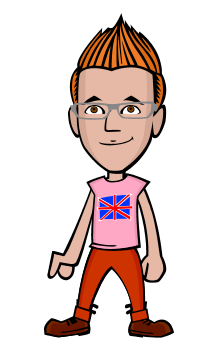Mark A. W. Andrews, associate professor of physiology and director of the Independent Study program at the Lake Erie College of Osteopathic Medicine, provides the following explanation.
Although not fully understood, yawning appears to be not only a sign of tiredness but also a much more general sign of changing conditions within the body. Studies have shown that we yawn when we are fatigued, as well as when we are awakening, and during other times when the state of alertness is changing.
You are correct in thinking that yawns are catching. Seeing, hearing or thinking about yawning can trigger the event, but there is little understanding of why it is contagious. A number of theories regarding the genesis of yawning have been presented over the years. Some evidence suggests that yawning is a means of communicating changing environmental or internal body conditions to others. If so, then its contagious nature is most likely a means of communication within groups of animals, possibly as a means to synchronize behavior. If this is the case, yawning in humans is most likely vestigial and an evolutionarily ancient mechanism that has lost its significance.
Yawning is a stereotypical reflex characterized by a single deep inhalation (with the mouth open) and stretching of muscles of the jaw and trunk. It occurs in many animals, including humans, and involves interactions between the unconscious brain and the body, though the mechanism remains unclear. As for the etiology of yawning, for many years it was thought that yawns served to bring in more air because low oxygen levels were sensed in the lungs. We now know, however, that the lungs do not necessarily sense oxygen levels. Moreover, fetuses yawn in utero even though their lungs aren�t yet ventilated. In addition, different regions of the brain control yawning and breathing. Still, low oxygen levels in the paraventricular nucleus (PVN) of the hypothalamus of the brain can induce yawning. Another hypothesis is that we yawn because we are tired or bored. But this, too, is probably not the case because the PVN also plays a role in penile erection, which is not typically an event associated with boredom.
It does appear that the PVN of the hypothalamus is, among other things, the "yawning center" of the brain. It contains a number of chemical messengers that can induce yawns, including dopamine, glycine, oxytocin and adrenocorticotropic hormone (ACTH). ACTH, for one, surges at night and prior to awakening, and induces yawning and stretching behavior in humans. The process of yawning also appears to require production of nitric oxide by specific neurons in the PVN. Once stimulated, the cells of the PVN activate cells of the brain stem and/or hippocampus, causing yawning to occur. Yawning likewise appears to have a feedback component: if you stifle or prevent a yawn, the process is somewhat unsatisfying. The stretching of jaw and face muscles seems to be necessary for a yawn to be satisfying.
More information is needed to fully understand the origin and meaning of the yawn. It may be that other parts of the brain are involved. Interestingly, although yawning is a normal function, why it occurs excessively in some patients with brain damage or with multiple sclerosis is unclear.
Why do we yawn when we are tired? And why does it seem to be contagious?
Posted on at



